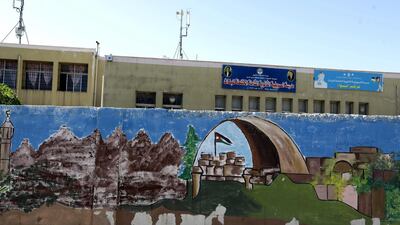The Jordanian teachers’ strike entered its fourth week on Sunday after the teachers’ union rejected a government offer to raise incremental salaries based on experience and in the face of a court decision ruling the work stoppage illegal.
As classrooms across the country remained empty, the Administrative Court in Amman on Sunday ruled the ongoing strike “illegal,” ordering teachers to resume classes immediately and the union to announce the end of the work stoppage.
In an immediate response to the court decision, Jordan Teachers Syndicate deputy president Nasser al Nawasreh vowed “we will not turn back from our strike,” Jordanian daily Al Rai newspaper reported.
The court decision came as the teachers’ association rejected a government offer to provide individual monthly salary raises that fell short of their demands; a 50 per cent increase on all basic salaries as pledged by the government in 2014.
According to the latest offer by the government, issued after a Cabinet meeting on Saturday, teachers would receive a montly salary raise between JD24-JD31 (Dh124 – Dh160) depending on rank and experience. For instance, an assistant teacher would receive a JD24 increase, while a teacher would receive a JD25 raise.
The new offer would cost the treasury an additional JD28 million. Meeting the union’s demands for a blanket 50 per cent raise would cost the government more than JD112 million.
The teachers’ union argues that many assistant teachers carry a heavy burden and carry out duties beyond their scope and that the offer represented 10 per cent of their demands- an amount the syndicate referred to as “bread crumbs.”
The rejection comes despite direct appeals from Prime Minister Omar Razzaz, a former education minister, who had expressed hope last Thursday that the crisis would be resolved and schools would reopen “within 48 hours”.
In an interview with Jordan Television late Saturday following the government’s offer, Mr Razzaz urged for an immediate resolution, noting that “time is not on our side,” to salvage the school year.
“It would be great to spend weeks and months to discuss all these issues, we are ready, but the issue of the students and their return to school is pushing us to take this decision,” Mr Razzaz said, underlining the importance of students’ constitutional right to education.
He also urged national unity amid an economic downturn that is hitting all sectors , stressing “we are all in the same boat; what is happening is not in anyone’s interest. In this stage there must be a united front.”
Earlier on Sunday, dozens of teachers gathered in a protest at the government education directorate in the town of Ajloun, 70 kilometres north of Amman, to declare their rejection of the government offer.
Teachers have long been among the lowest-paid government employees in the country; Amman street-cleaners earn more than entry-level teachers.
With the rising cost of living and many having to teach two-shifts per day due to overcrowding, teachers say that the JD370 salary is no longer sufficient.
The teachers’ union is the largest organised labour group in Jordan, with 140,000 members from across the country.
Observers say the number of teachers – most families can name at least one member in the profession - in the country has given the association the popular support required to continue the longest work-stoppage in modern Jordanian history.
The Jordanian government, which is currently battling a debt crisis and is on pace for a JD738 million budget deficit, has been trying to slash spending in order to honour an IMF credit line.

